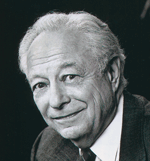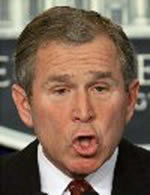
There's been a lot of speculation about what the Democratic takeover of Congress meant in the eyes of the American voter. Here at the Blue South we think we've reached a bit of a consensus. It has been said by many that people don't necessarily vote for something or someone so much as they vote against something. This sentiment definitely meshes with the efficacy of negative campaigning (despite being detested by us ideologues). And I don't think there's much argument from any side of the political spectrum that the Democrats never really formulated an affirmative message prior to the mid-terms. So what, then, were the American voters against?
The obvious answer here is the Iraq war. That idea has been beaten into all of our heads by the media, but we here at the Blue South think it's not entirely accurate. The real thing that the voters spoke out against, at least as far as we can see, is the specter of neoconservative thought as manifested in our foreign policy. Of course the Iraq war is exactly that, but it is important to point out that Americans have rejected an approach to foreign policy, not one instance of bad judgment and poor execution.
Beginning after WWII, as the Cold War began to rage, early neocons such as Irving Kristol (pictured above) began to formulate their opinions. The idea, originally, was all about the containment of communism and fighting an indirect war with the Soviet Union. We had the moral high ground at that point because it was the Soviets who were viewed as the ones with imperial aspirations, and we were merely fighting the good fight to contain their influence.
However, the Cold War has been over for a while now. Communism has exposed its fatal flaws, namely the social-engineering catastrophes that lead to the deaths of millions and millions of people. If any lessons can be learned from the failure of the communist utopia they must be that utopias don't, and never will, exist and that societies and governments are best left to evolve in their own ways without intervention from outside ideological forces.
This brings us to the tragic flaw of the contemporary neoconservative- the idea that America's best interests are served by spreading democracy throughout the world. On its face it seems like a good a idea. No one here will argue that Democracy is not a good thing. It has been a major contributor to the vast freedoms that we have grown to love in this country. However, the policy of spreading democracy at the barrel of a gun, toppling regimes and then forcing elections, has become the subject of the ultimate democratic criticism- the voter. The fact is that, while spreading democratic values is a good idea, it is not a good in and of itself. The method matters, as do the results and, most importantly, the will of the people being "democratic".






